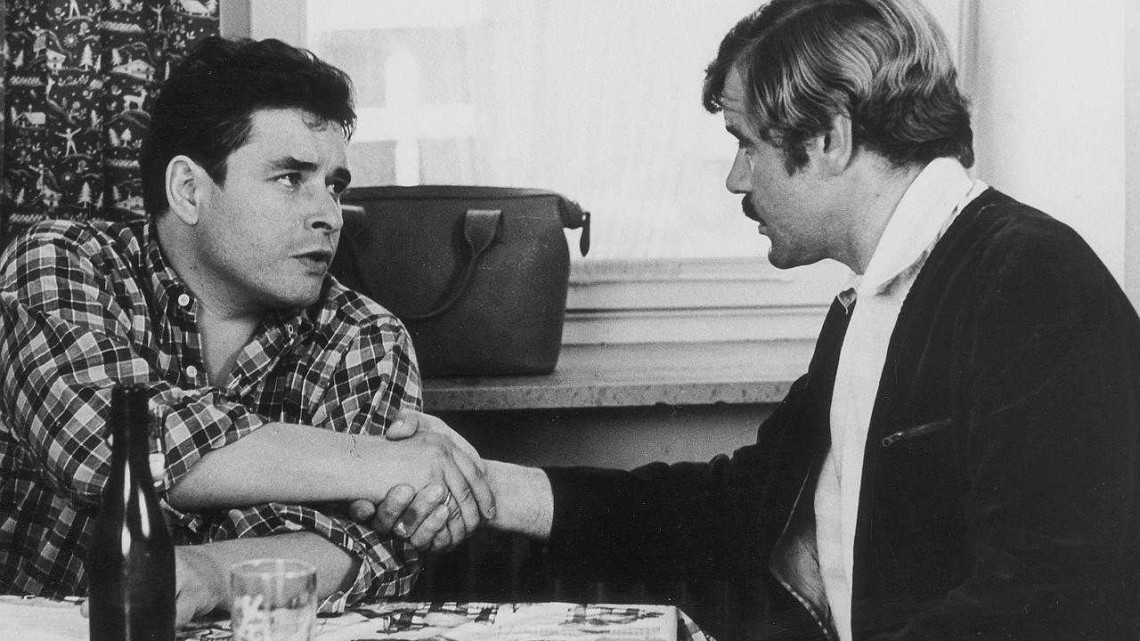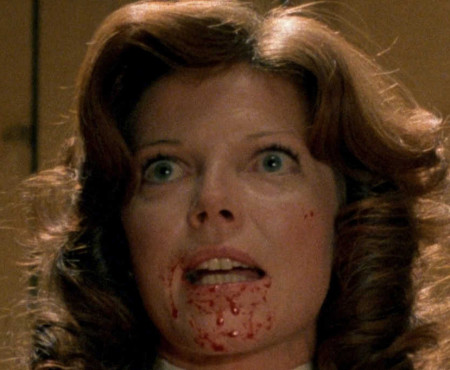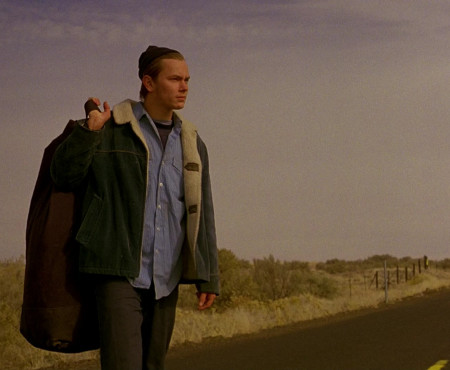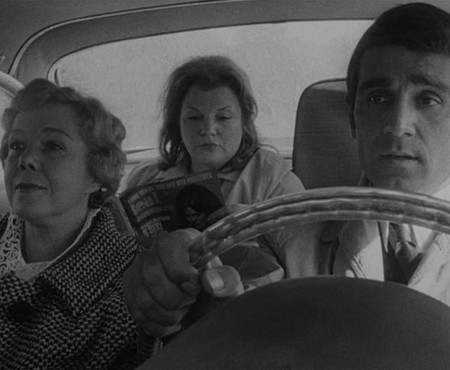Rainer Weiner Fassbinder almost never worked on just one project at a time. From 1969 to 1971, the well-known workaholic waltzed from directing more than 10 films to writing several stage plays. The production of The Merchant of Four Seasons (1971) proved to be an exception to that rule in the German auteur’s brief but gloriously prolific career. The film was borne out of an eight-month hiatus in which Fassbinder took a break from filmmaking, a rare phase after which the director specifically focused on making this one feature. Acting as a platform for him to grasp onto new artistic directions, The Merchant of Four Seasons exhibits the newfound influence of the films of Douglas Sirk, a characteristic that would emerge repeatedly in the rest of Fassbinder’s oeuvre. A controlled melodrama that is both emotionally somber and stylistically exorbitant, the film examines the downfall of a man who increasingly sees himself walking out of step with others.
Interpersonal tensions are quickly established in the film’s opening scene. Hans (Hans Hirschmüller), the film’s main character, has just returned from the war. His mother greets him in a hesitant embrace, her disappointment visible. Soon, we discover why: She blames Hans for luring a childhood friend into joining the army, consequently causing his death on the battlefield. “Always the same, the best are left on the field while people like you come back,” says the stoic older woman and thus establishing Hans’s relationship with the people in his life: His existence is, more or less, expendable. Mother and son are filmed in front of a narrow doorframe with both of their faces turned toward the audience, a composition that is formally inviting but emotionally closed-up.
This mode of mise-en-scène is repeated throughout the film, accentuating the characters’ inability to communicate with one another. In several dinner scenes, the dining table is placed in the dead center of the frame while its participants are seated asymmetrically on the sides. People appear to be comfortably put in the right places, yet their strained demeanors cannot help but seep through the supposedly civil arrangement. During one sequence in which Hans sits with his friends in a bar, his wife Irmgard (played by Fassbinder’s frequent collaborator Irm Hermann) interrupts the setting of dinner by coming in and begging her husband to come home. In response, Hans picks up a chair and throws it at her, a violent outburst that crosses the line between sanity and madness. Hans is not at ease within the context of matrimonial bliss. Neither is he at ease outside of it, though, for his friends never seem to listen to his drunken ramblings. Similar to the nature of his trade, a veteran-turned-fruit-merchant, Hans is between worlds. Throughout the film, Hans constantly looks out the window, in much the same pose Jane Wyman is seen holding at times in Sirk’s All that Heaven Allows (1955). Unlike Sirk, however, Fassbinder doesn’t show us what his character sees outside; we only see Hans contemplating the uncertainty of an escape from his crumbling middle-class life.
Hans is out of place even in his own family house. Everyone holds him in contempt, except for his sister, Anna, played by Hanna Schygulla. Similar to Karin, the character Schygulla played a year later in Fassbinder’s The Bitter Tears of Petra von Kant, Anna acts as the catalyst for shattering the illusion of civil human behavior. Both characters are also unknowingly cruel in their good intentions. While defending Hans in front of the family during a family dinner, Anna is unaware that her words only deepen her brother’s inner turmoil. Her motive for protecting Hans against others’ criticisms is ambiguous: Her actions spring out of either genuine love for her brother or her own desire to rebel against the rigidity of domestic relationships. Her simultaneously selfish and selfless characterization adds to the overall claustrophobic environment of Hans’s world.
Possibly the only time anyone actually pays attention to Hans is when he calls out his products to the customers. Selling fruits and dragging his cart from courtyard to courtyard is the lone moment in which Hans’s existence gains meaning. However, the merchant’s financial stature soon fades away when, aiming to renew his marriage to Irmgard through obtaining monetary security, he hires another worker to carry the cart for him. Now that he has been taken off the streets and placed in an environment in which his presence remains irrelevant, Hans suddenly becomes even more socially detached. His being is both within and without, for every action he takes can only have an external effect that renders him less and less of himself. The film’s emphasis on Hans’s constant drinking and eating illustrates perfectly the character’s enigma: He is unable to fill himself up from the outside.
The Merchant of Four Seasons is a story of deficit. Every character is lacking a certain something, be it money, love or self-validation. Especially for Hans, it remains unclear what prevents him from being whole. Like the fruits that are passed from cart to cart, Hans is adrift in a world that he can no longer call his own.
A/V
The high-quality video transfer of this Criterion release brings out the cinematic stylization in the film’s somewhat stagy mise-en-scène. The majority of The Merchant of Four Seasons takes place indoors and this restoration luxuriously illustrates the subtle difference between the barer, more neutral setting of Hans’s apartment and the claustrophobic interiors of his mother’s house, which is adorned with red drapes and clustered pieces of furniture. The few night sequences are especially beautiful as the clash between strong and subdued colors that builds the film’s psychologically confused environment is effectively presented.
Extras
The commentary from Wim Wenders is especially interesting, considering how he deems The Merchant of Four Seasons to be his favorite of Fassbinder’s films precisely due to its paradoxical blend of melodrama and realism. Other supplements include newly filmed interviews with actors Irm Hermann and Hans Hirschmüller which offer interesting insights into the making of the film as well as Fassbinder’s relationship with his performers. The Blu-ray also features an interview with film scholar Eric Rentschler and an essay from Thomas Elsaesser containing insightful critiques on the middle-class sensibility that the film portrays.
Overall
The Merchant of Four Seasons is among Fassbinder’s best and an essential stepping stone for a deeper understanding of the auteur’s Douglas Sirk-influenced works—The Bitter Tears of Petra von Kant (1972), Ali: Fear Eats the Soul (1974), etc.—that followed.




















